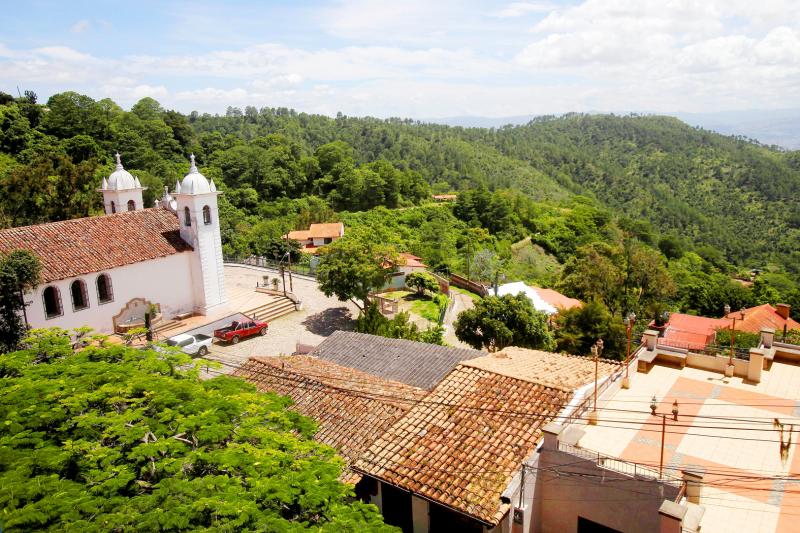Honduras seeks tourism boost in ‘bitcoin valley’
People can pay for a slushie with cryptocurrency on the streets of “bitcoin valley,” a project in the Honduran tourist enclave of Santa Lucia, where the country has joined the digital currency trend.
The small town in the mountains, 20 minutes from the capital Tegucigalpa, has become a bitcoin town.
Business owners large and small are adapting to handle cryptocurrencies as payment, hoping to attract more tourism.

Photo: Reuters
“It will open up more opportunities and attract more people who want to use this currency,” said Cesar Andino, manager of the Los Robles mall.
The Bitcoin Valley project is targeting 60 businesses that will initially be trained and adopt cryptocurrencies to market their products and services, and expects to spread this practice to more businesses and nearby areas.
The initiative was jointly developed by the Blockchain Honduras organization, the Guatemalan cryptocurrency exchange consortium Coincaex, the Technological University of Honduras and the Santa Lucia City Government.
“Santa Lucia’s community will be educated to use and manage cryptocurrencies, implement them in different businesses in the region and generate crypto-tourism,” said Ruben Carbajal Velazquez, professor at the Technological University.
While some Latin American countries are exploring the potential of cryptocurrencies, there are risks.
Last September, El Salvador adopted bitcoin as legal tender after introducing its own “bitcoin beach” in the surfing town of El Zonte.
The Central American country’s investment in bitcoin was hampered by a slowdown in the crypto market, and skepticism from multilateral lenders and rating agencies. Its publicly disclosed holdings of $105 million are now worth about $57 million.
To manage volatility, the bitcoin valley project would “enable merchants to receive immediate payments in local currency, eliminating the risk of fluctuations in cryptocurrencies,” said Blockchain Honduras founder Leonardo Paguada.
Critics of bitcoin’s expansion have warned that these types of operations could fuel money laundering and financial instability while widening the digital divide, as poorer citizens may struggle to access the technology.
Comments will be moderated. Keep comments relevant to the article. Comments containing offensive and obscene language, personal attacks of any kind or advertising will be removed and the user banned. The final decision will be at the discretion of the Taipei Times.


